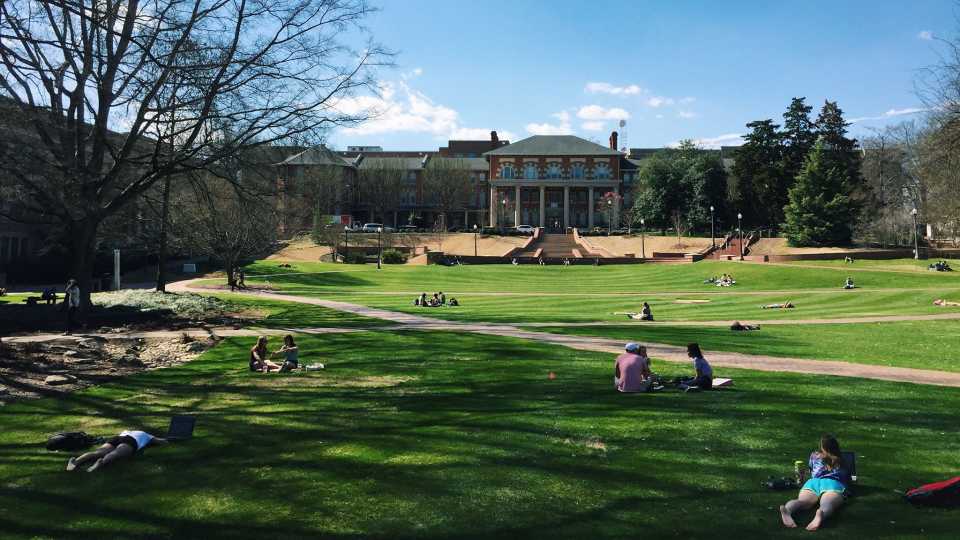A Legendary Figure In Florida Citrus
Winding through the white-topped Appalachian Mountains, slowly flowing across about 100 miles of West Virginia’s most lush lands, the Kanawha River is the lifeblood of its neighboring communities. The river valley supplies natural gas and mining opportunities for even the most remote of communities. In 1915, it lost a family to Florida’s fertile fields. And, in doing so, lost a farming legend.
For A Better Life
In 1915, the Gates family set out in search of a better life for their family. And, even though much of West Virginia was ripe for farming, the Gates headed south, and landed in the Sunshine State. But, to commemorate their heritage, the Gates named their new land Kanawha Groves, and set out to realize their dream.
Less than 10 years later, in 1924, a young boy was born into the family who would become a Florida citrus icon.
“My parents wanted to grow citrus,� Phil Gates Sr. says. “So, they moved down here and very quickly got started developing groves. I worked on everything from planting trees to harvesting fruit. I loved it.�
Of course, like many during that time, Gates’ duties in the grove were replaced with duty to country. He was drafted in 1942 and assigned to the U.S. Cavalry.
“We still rode horses back then,� he recalls. “I felt at home on a horse, and was ready for whatever life would bring me. I expected to go to war.�
What he did not expect, however, was to be assigned to Australia, where the 1st Cavalry Division was ordered to help protect the country against possible Japanese invasion.
“When (the U.S. government) realized that Australia wasn’t in danger, our unit was reassigned to various places throughout the South Pacific,� Gates says. “They took our horses away and made us infantry. When the war was winding down, I finally had enough credits to come home.�
So, on Christmas Eve 1945, Gates walked through the doors of his family’s summer home in Charleston, WV.
Back To Business
It didn’t take long for Gates to get back to the business of citrus growing. Shortly after returning from the war, Gates enrolled at the University of Florida, and graduated with a bachelor’s degree in agriculture in 1949. Of course, a diploma wasn’t the only thing Gates earned during that time; he also won the heart of a beautiful young lady he had met in Ft. Pierce a few years earlier. In 1948, Gates married Barbara. Wed nearly 60 years, the couple still live in Ft. Pierce.
“I was enamored by her,� Gates says. “She was incredible then, and is still incredible.�
Armed with a new bride and an education, Gates expanded the family’s St. Lucie County groves to more than 1000 acres over the next 50 years.
“We bought land here and there, whenever we could,� he says. “Back then, land was relatively cheap, so we planted as much as we could. Times were great then.�
The Best Of Times …
Gates says the best time in Florida citrus history came in the years following the introduction of the frozen concentrated juice market. And, though concentrated juice was first made in 1920, frozen concentrated juice wasn’t commercially available until 1946. According to Gates, the two decades following were the industry’s best.
“There was a huge boon in the years following the introduction of FCOJ,� he says. “We were getting good prices, we were working together, and land was available. Even small growers were making a good living.
“The biggest worry back then was freezes. We had a few, but for the most part, the 1950s and 1960s were the industry’s highlight.�
It was during this time that Gates began to establish himself as a leader in the industry. He served on numerous boards, committees, and councils — including chairing several of them, most notably the Growers Administrative Committee and the Indian River Research and Education Center River Grapefruit Committee.
“I always felt it was important for growers to get involved in the decision-making process,� he says. “I tried to stay active in as many industry organizations as possible.
“That way, you can affect positive change.�
What Gates most remembers about that time is how it was good to be a citrus grower. “It was truly a fun time.�
… And Hoping For Better Times To Come
“It’s not fun anymore,� he says.
Gates says we are now in the worst time for Florida citrus, but the industry will survive.
“Today’s citrus growers face more daunting challenges than at any other time in history,� he says. “Storms, land value, encroachment, government meddling, diseases, insects, foreign competition, in-fighting — you name it and growers are facing it. But, growers are resilient, and can rebound from anything if they want.�
Gates says the most immediate threat is canker, which has already taken away nearly 20% of Florida’s citrus acreage — 600 acres of which were in Kanawha Groves. Only about 60 of the 1000 acres are now in production.
“We want to replant, but there’s no trees to be found and our land value has skyrocketed,� he says. “It makes it difficult, from a financial perspective, to stay in production.�
Gates says there is a way out of the quagmire.
“If growers can come together and fight the problem as a unified force, we can get through it. It’s going to take everyone working together.�









